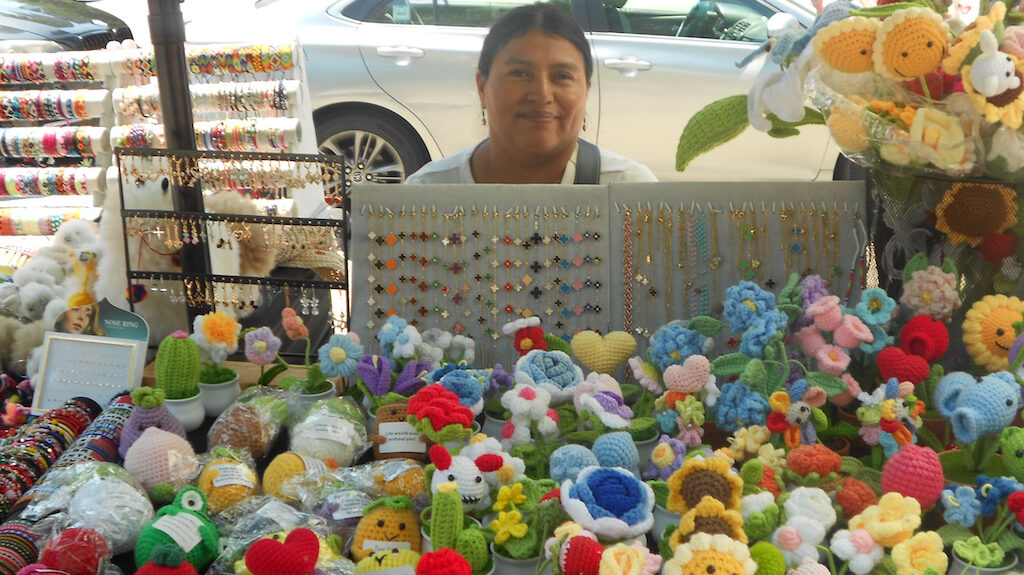Business Community Lifestyle & Culture
From Ecuador to the US, selling her wares
By Jasmyn Centeno
Mercedes Masaquiza places her handmade, crocheted keychains, beaded bracelets, and blouses across the fold-up table she placed on a spot at the Columbus Circle entrance to Central Park. She sits down, then, on second thought, she gets up to adjust the hats on the rack and re-position her palm-sized crocheted flowers in their crocheted pots.
Presentation is everything. She works hard to show that and to keep her business running.
“I get up at 4 a.m., no later than 6,” said Masaquiza, in her native Spanish. “If I do, it’s as though I’ve wasted an entire day.”
Masaquiza dropped out in middle school to help her parents run their crochet business in her hometown of Salasacas in the Ecuadoran province, Tungurahua. Her mother and father taught her to crochet and sew miniature alpaca and guinea pigs out of alpaca wool that they wove themselves.
“After reading and writing, of course,” said the single mom of two, “this is all I’ve ever known and the only thing I know I’m good at.”
When people look at her work, she hopes they will see the time and effort and love she put into what she sells, and not just at Central Park. She also vends in Union Square. By subway from Bay Ridge, Brooklyn, it takes her an hour to get there.
On her best days, she makes about $300. That’s more than the $100 a week she earned in her home country, where the Covid-19 pandemic sank her profits even further. In Ecuador, roughly 30% of the people are poor and 46% live in rural areas where poverty is even more extreme.
“Back in Ecuador, I would find cardboard on the floor and lay out my pieces there hoping that the few tourists that came by would be interested in my work,” she said.
In 2020, she became the first in her family to ever migrate to the United States. With her two daughters, 13 and 18, she came searching for better-paying customers. Her daughters are helping her achieve that goal. “ … I’m not alone, my 13-year-old daughter helps me and even suggests designs for me to create saying, ‘Well, maybe this will sell better’ or ‘If you added quotes to these keychains they’d sell.’ Her ideas and drawings then become my inspiration,” she said. “From when I wake up to when I go home, it seems as though I always have a project in my hand working on my next piece to sell.”
Through all of Masaquizas efforts, she’s been able to sustain her family and is convinced that the American dream is drilled in perseverance, hard work and dedication
“I didn’t come to America expecting everything to be handed to me. You can’t come to any country thinking you’ll be picking money up from off the floor. The true American dream is work.”


